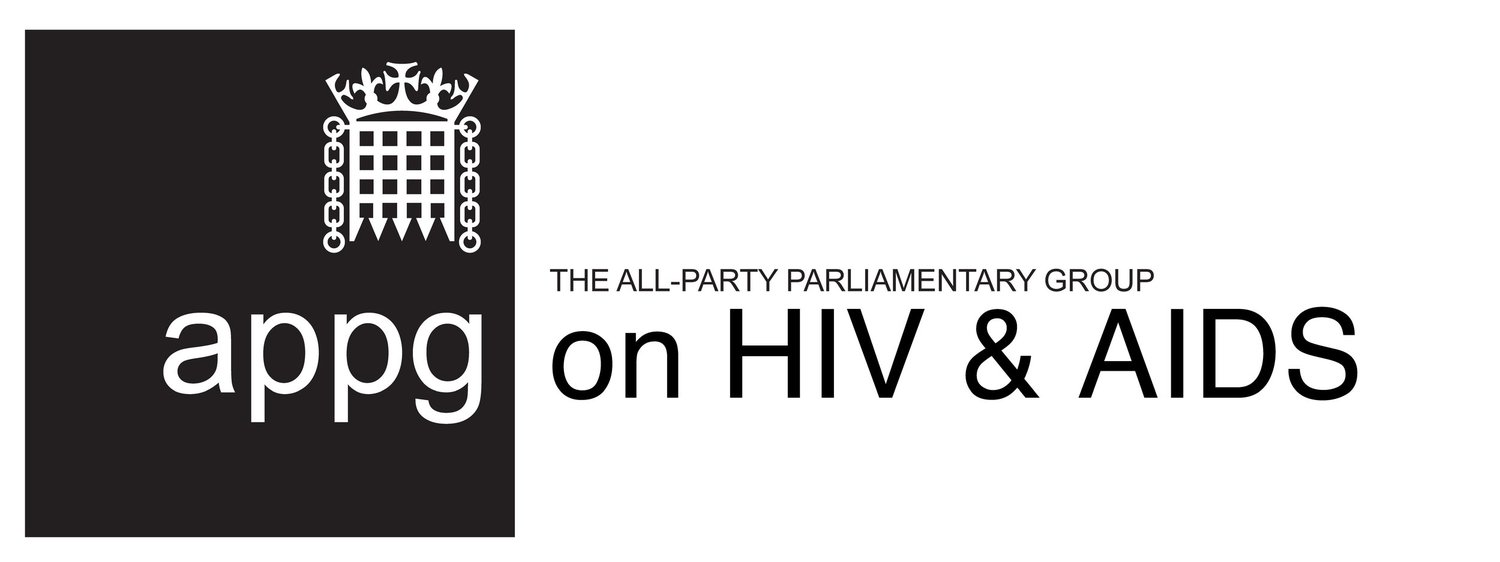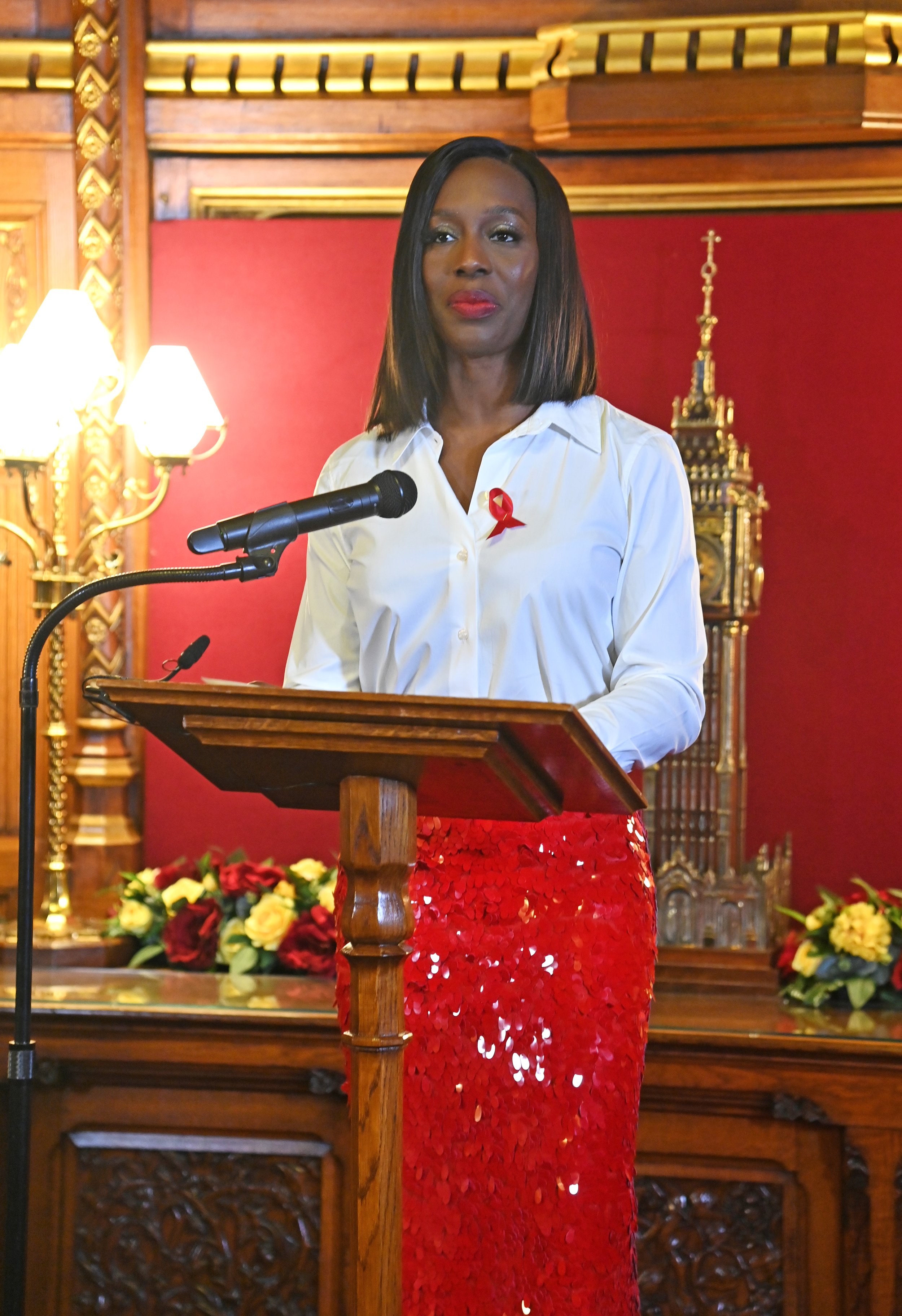Good evening everyone and thank you to the Secretary of State for those words. I’m Florence Eshalomi, the Member of Parliament for Vauxhall since 2019. I’ve been Co-Chair of the All Party Parliamentary Group on HIV and AIDS since 2021.
Co chair Florence Eshalomi MP speaking in honor of Sir Elton John
It’s such an honour to be here in Speaker’s House and to be joined by a true pioneer of global HIV campaigning. Thank you to Sir Elton for being here and to Mr Speaker for hosting us.
You’ll forgive me for starting with some acknowledgements of the people that have made tonight possible.
My co-Chairs of the All Party Parliamentary Group – the Rt Hon David Mundell MP, Steve Brine MP and Baroness Liz Barker.
I would also like to thank our Senior Policy Advisor for his incredible work in putting this event together. Thank you Mark Lewis.
Lastly, members and supporters of the APPG – past and present – for their commitment and dedication to our shared cross-party goals. Because of them, the Group is a positive force for raising awareness, promoting understanding, and influencing policy on issues related to HIV and AIDS.
As part of this work, I visited University Hospital in Lewisham last year with Parliamentary colleagues and the Terrence Higgins Trust. That day we saw the work of the Elton John AIDS Foundation in action, during an opt-out HIV testing pilot in its emergency department.
It was clear from my conversations with clinicians that opt-out testing is a simple and effective way of reaching people who would not get tested through any other route.
They told me about the range of people that had taken up the offer whilst in A&E. The oldest of these was an 85 year old woman who tested positive. This shows that opt-out testing works.
By reaching these demographics we will gain a deeper insight into HIV prevalence than we’ve ever had before.
I’m a proud South Londoner, and I’m even prouder to represent my home constituency of Vauxhall. I have been an advocate on HIV issues for many years, and I first took up the work because I could see that misinformation and stigma were causing undetected harm in my local area.
The facts show that HIV in South London has a majority black, majority female, face. More than 50% of all HIV cases in the pilot came from black communities. And within heterosexual transmissions, over two thirds were women.
But black, heterosexual women are not likely to think of themselves as being at risk. This is partly because of the outdated stereotype which still associates HIV in the UK with white homosexual men.
Heartbreakingly, over 60% of cases in the pilot were in people with advanced HIV. They were unaware that they needed immediate treatment. But through the power of opt-out testing, they were found.
photo by Dave Bennet
And in the years to come, hundreds more will be found across the country. That is why this work remains so important.
So I welcome the announcement by the Secretary of State, that this program will be further expanded in England, not just for HIV but for Hepatitis B and C too.
Together, these three diseases are hiding in plain sight. Their consequences are devastating. Treatment is costly and often highly complex.
But finding people early, getting them onto lifesaving medication, and preventing further infection benefits people everywhere.
I will end by saying that we must keep up the momentum started by the efforts of so many people in this room. By doing so, we will continue to save lives.
Our next speaker is my boss – so please be nice to him. He was also the first UK Party Leader to endorse the HIV Commission’s call for opt-out HIV testing in all high prevalence places.
It is my immense pleasure to introduce the Leader of the Opposition, Sir Keir Starmer.


